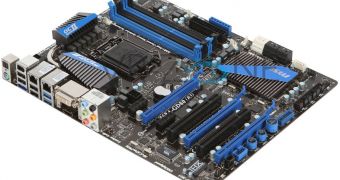With just a few more weeks to go until the Intel Z68 chipset becomes official, the Santa Clara based company decided to rename the SSD caching functionality of its upcoming PCH to Smart Response, a name that is destined to increase Intel's brand awareness throughout its customers.
Outside of the name change, the functionality of this new feature will remain unchanged.
Smart Response allows consumers to use a low capacity solid state disk to further improve the performance of their HDD without giving up on storage space by using the SSD as fast a cache memory.
The feature was tested a while back by Tom's Hardware on a pre-production Intel Z68-based motherboard and everything worked out pretty well as it managed to offer a tangible speed improvement over using just an ordinary hard drive.
There are, however, some situations where the technology can't improve the performance of the system, such as boot times or write-heavy tasks, but everything else was working more than OK especially considering how easy it is to setup such a hybrid drive.
The Intel Z68 Express chipset comes as a hybrid between the Intel P67 and the H67 PCH as it features the FDI interface required to take advantage of the Sandy Bridge integrated graphics core as well as overclocking support.
Although it may seem like just a small user niche will be interested in running a highly overclocked processor while using integrated graphics, the FDI interface is required in order to use the Quick Sync video transcoding technology embedded inside the Sandy Bridge core.
As our review of Sandy Bridge has found out, this technology is able to significantly increase the speed of the transcoding process without affecting the image quality of the resulting video files.
Furthermore, with the help of Lucidlogix' Virtu driver, QuickSync can even be enabled on systems that feature discrete graphics as the technology is able to switch seamlessly from one GPU to another depending on the task run.
The first motherboards using the Z68 PCH are expected to make their appearance somewhere in the May 8th-14th timeframe. (via SemiAccurate)

 14 DAY TRIAL //
14 DAY TRIAL //